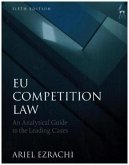Competition law, known in the United States as antitrust law, has three main elements: prohibiting agreements or practices that restrict free trading and competition between business entities. This includes in particular the repression of cartels. Banning abusive behavior by a firm dominating a market, or anti-competitive practices that tend to lead to such a dominant position. Practices controlled in this way may include predatory pricing, tying, price gouging, refusal to deal, and many others. Supervising the mergers and acquisitions of large corporations, including some joint ventures. Transactions that are considered to threaten the competitive process can be prohibited altogether, or approved subject to "remedies" such as an obligation to divest part of the merged business or to offer licenses or access to facilities to enable other businesses to continue competing. The substance and practice of competition law varies from jurisdiction to jurisdiction. Protecting the interests of consumers (consumer welfare) and ensuring that entrepreneurs have an opportunity to compete in the market economy are often treated as important objectives.
Bitte wählen Sie Ihr Anliegen aus.
Rechnungen
Retourenschein anfordern
Bestellstatus
Storno








